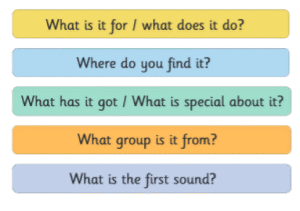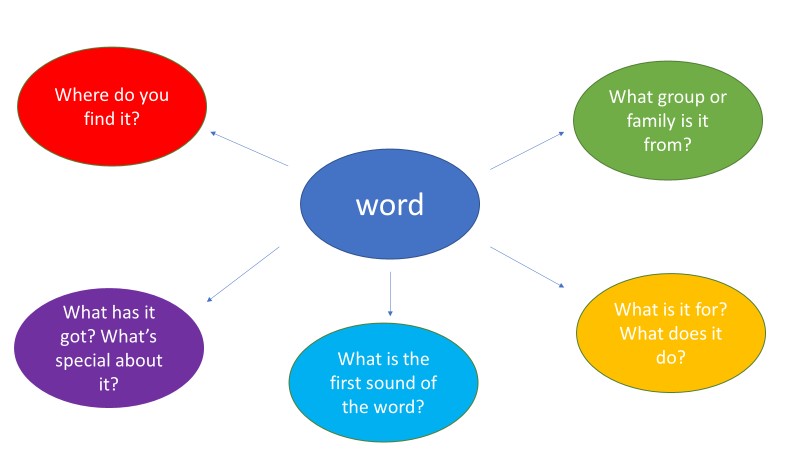This a good resource for younger children and easy to use. You can make a vocabulary card (see below on left for example) or use a word map (see below on right for example). There are lots of these available online or resource books (see ‘Word Aware’ by Stephen Parsons). Schools and Speech and Language Therapists will have their own which you could request for. Or, alternatively, you can just draw them out – just grab yourself some paper or a whiteboard and coloured pens!


Tip: Start with an object at home e.g. show the child a toy train and go through the questions with them (talking, not writing). For example:
- What is it for/what does it do? This is asking what it can do and what you can do you do with it, e.g. you drive it, you ride it. Take it in turns to think of things. If you go first, this will help the child understand the activity and think of things.
- Where do you find it? Take it in turns to uk best essays.org think of where you find a train, e.g. at a station, on the railway, in the fields etc. One turn each is enough, you don’t have to have a lot of turns, you know the child and can judge what is appropriate for them.
- What has it got/what is special about it? (this is asking about the parts that it is made up of). Look at the object together to help do this, e.g. it’s got windows, seats, door, wheels etc essays services reviews.com. You can include as many or as few parts as you think the child can cope with.
- What group or family is it from? This is asking about the category. It can be a hard question, so make it easier by offering two choices, e.g. Is it an animal or transport? If you make the two choices very different then you make it easier for the child to choose the answer.
- What is the first sound? This is asking for the first speech sound, not the first letter. Help the child by offering them a choice of two speech sounds if they find this hard, e.g. “Train. Can you hear a t or a b? Train. What do you think?”
Tip: if the child is not able to think of responses, offer them a choice, e.g. “Where do you find a train? In a station or in a school?” (A choice is easier when you make two choices very different. You can gradually make the choice harder).










